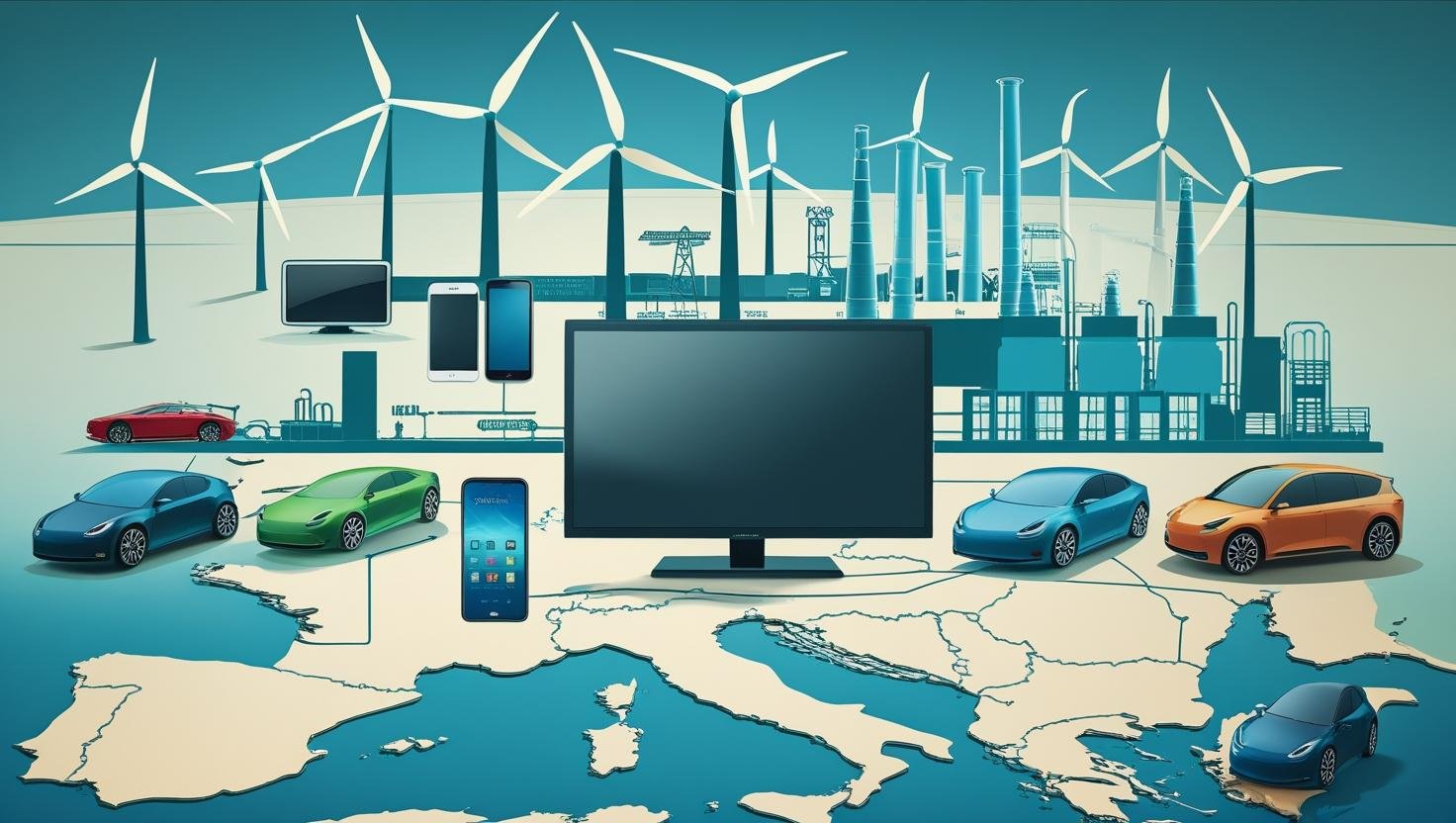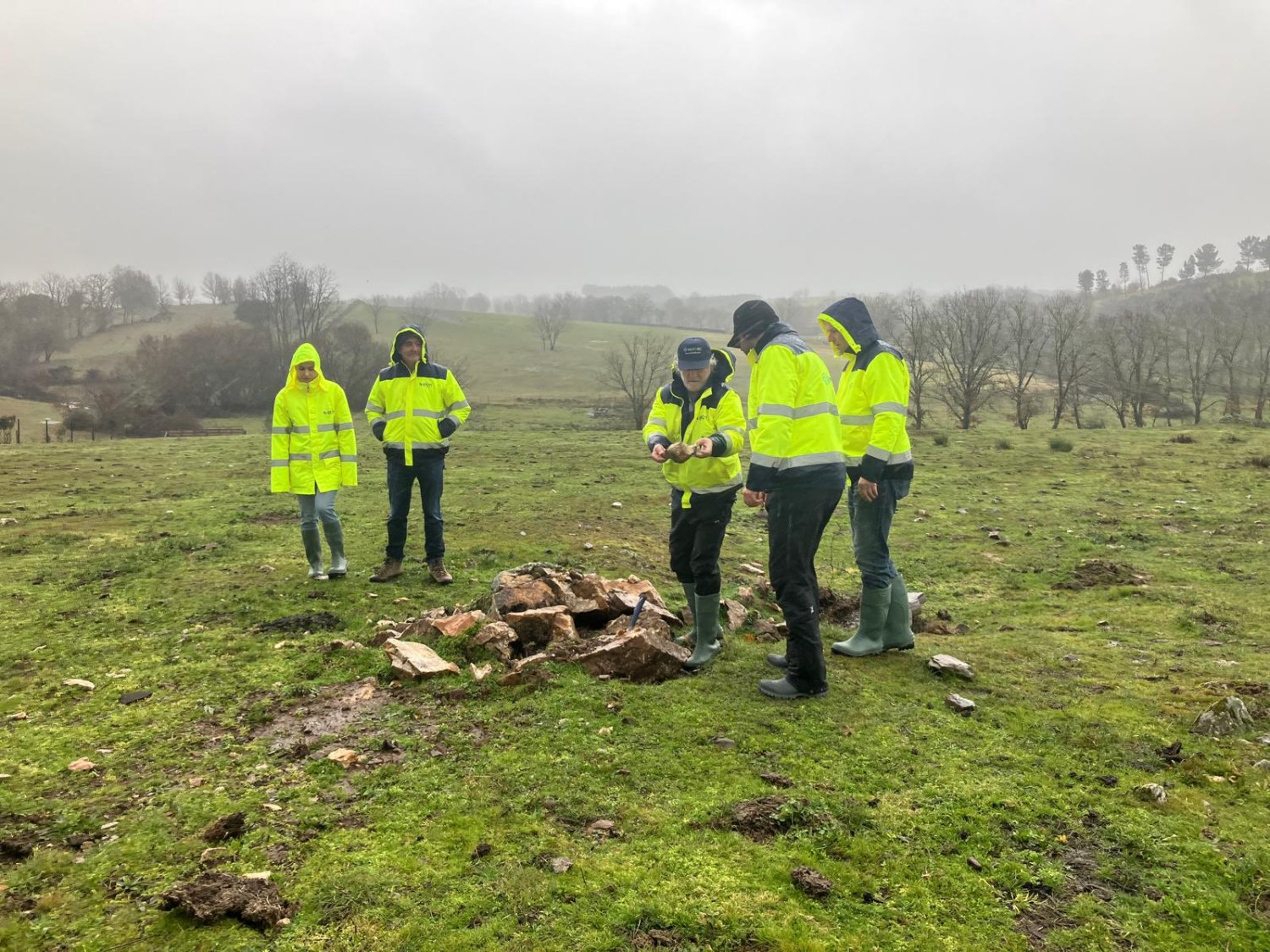From mining waste to tomorrow's batteries
Our day by day / 19-06-2025
Lithium has become a strategic resource for a world looking towards a more sustainable and efficient future. It is not abundant, but it is essential for the energy transition: its ability to store large amounts of energy in small spaces makes it indispensable for electric vehicle batteries and renewable energy storage systems. However, in the wake of the rise of these green technologies, a key question arises: how sustainable is the lithium that powers them?
The answer, for now, is worrying. Currently, the European Union is almost 100% dependent on third countries for its lithium supply. This geopolitical dependence, coupled with the environmental consequences of traditional extractive practices, has made the search for more sustainable alternatives a strategic priority for Europe.
Is it possible to source lithium responsibly?
Faced with this global challenge, Li4LIFE was born, an ambitious European project financed with 6 million euros by the Horizon Europe programme and coordinated from León by the ICAMCyL Foundation. Its objective is clear: to develop clean and innovative technologies to extract and process lithium in a sustainable way from under-exploited deposits and mining waste in Europe.
The project, which will run until 2027, involves 18 international partners and aims to reduce Europe's dependence on lithium while minimising environmental impact through environmentally friendly processes.
In its role as project coordinator, ICAMCyL brings a technical team with extensive experience in the management of European projects and a solid track record in the field of critical raw materials and sustainable mining.
Aligned with the EU's 2030 targets
This work is part of the strategic objectives defined by the European Union in the Critical Raw Materials Act (2023), which aims to ensure a secure, diversified, and sustainable supply of essential materials for the energy and digital transition. In this context, Li4LIFE actively contributes to achieving the goal that, by 2030, at least 10% of the annual consumption of strategic raw materials comes from domestic extraction, as established by this legislation.
From forgotten deposits to the batteries of tomorrow
Europe has lithium. The problem is that it is found in underexploited deposits, where this metal appears alongside unconventional minerals such as petalite, lepidolite, swinefordite, or zinnwaldite. Currently, Li4LIFE is analyzing four key deposits (two in Spain, one in the Czech Republic, and another in Serbia) and developing processes to concentrate the ore and obtain battery-grade lithium carbonate. The most promising sample will be scaled up to a pilot plant, where its economic, technical, and environmental viability will be evaluated.
ICAMCyL's participation in Li4LIFE is no coincidence. The León-based foundation has been working for over a decade in the fields of raw materials, clean technologies, and industrial sustainability, and its role as coordinator of such a strategic project reflects its recognized technical capacity, regional vision, and commitment to Europe.
On this Environment Day, ICAMCyL shows that knowledge, innovation, and environmental responsibility are also driven from León. And that a greener, fairer future for Europe is possible…
Articulo publicado por La Nueva Crónica

